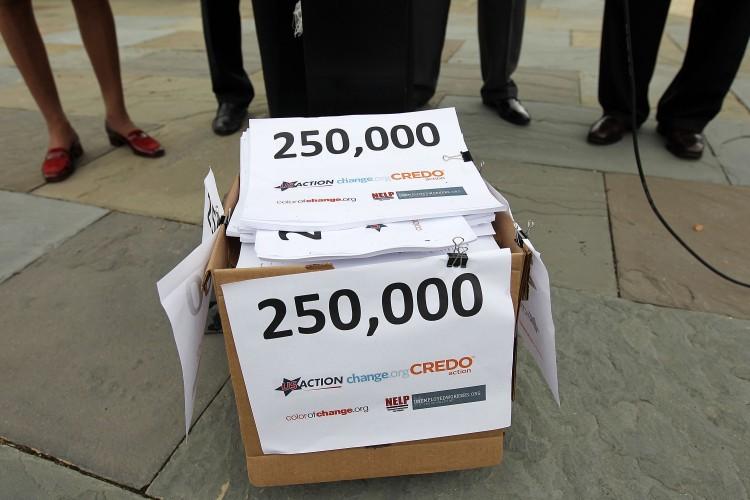Ben Rattray and Mark Dimas were merely two college seniors at Stanford University who held passionate weekly group discussions on social issues. They saw so many problems around them, but felt they had so little power to make changes. Little did they know these discussions would lead to the creation of Change.org, a non-partisan B-corporation that provides platforms for campaigns, allowing petitions to easily reach people worldwide.
The site receives a wide array of petitions, varying from ending corrective rape in South Africa to a petition for characters on Sesame Street to get married. Anyone, anywhere, can start a petition about anything.
“It’s like matchmaking,” said Charlotte Hill, the communications manager of the site. Staff members work with nonprofit organizations, highlighting petitions to groups that show similar interests.
Before successfully pressuring Bank of America into not implementing a $5 monthly debit card fee, stopping the deportation of dozens of people, reversing Hilary Clinton’s decision to not support driving rights for Saudi Arabian women, and stopping banks from foreclosing homes, Change.org had a rocky start.
When Rattray and Dimas launched the site in 2007, one had been working as a consultant in Washington and the other as a software engineer. They spent many hours working on online social fundraising and group volunteerism, but for many years the site did not draw much public attention.
It wasn’t until 2010, when the site shifted its focus to “citizen-driven collective action,” that it started to effect changes on a national and international level. The site is now growing by 500,000 additional members every month, with at least one campaign win a day.
“We’ve reached the tipping point ... people are recognizing and associating societal changes with us,” said Hill. “More and more social movements—from Egypt to Occupy Wall Street—are turning to our online platform.” The site has 5 million users.
The campaigns on Change.org are not legal petitions. Signatures serve as support for building momentum for campaigns that pressure “individual decision makers, not politicians.”
A campaign currently drawing a lot of attention is Target’s Black Thursday. The petition aims to change Target’s opening time back to 6:00 a.m. on Friday, instead of requiring employees to begin work at 11:00 p.m. on Thanksgiving. Anthony Hardwick created the petition because he didn’t want to miss Thanksgiving with his fiancé in order to sleep. This campaign served as a domino effect, inspiring hundreds of other Black Thursday retail employee petitions.
This past April, Ai Weiwei, a Chinese artist most famous for his creation of the Beijing Olympics Stadium, was illegally detained for denouncing the Chinese Communist regime for its human rights violations. Solomon R. from the Guggenheim Foundation started a petition on Change.org, which helped expedite Ai’s release. Working with the Museum of Modern Art, New York, the Tate Modern, London, and the Association of Art Museum Directors, the petition gained 10,000 supporters a day.
During that time, the site received “highly sophisticated denial of service attacks from locations in China,” said Rattray, now CEO of Change.org. Employees as well as users could not access the site or their email accounts.
“We were completely shut out and couldn’t do our jobs,” said Hill. “But this petition definitely did help secure [his] release ...”
From College Discussion Group to International Sensation
Ben Rattray and Mark Dimas were merely two college seniors at Stanford University who held passionate weekly group discussions on social issues.

Petition signatures sit in a box during a news conference September 21, 2011 on Capitol Hill in Washington, DC. Alex Wong/Getty Images
|Updated:





